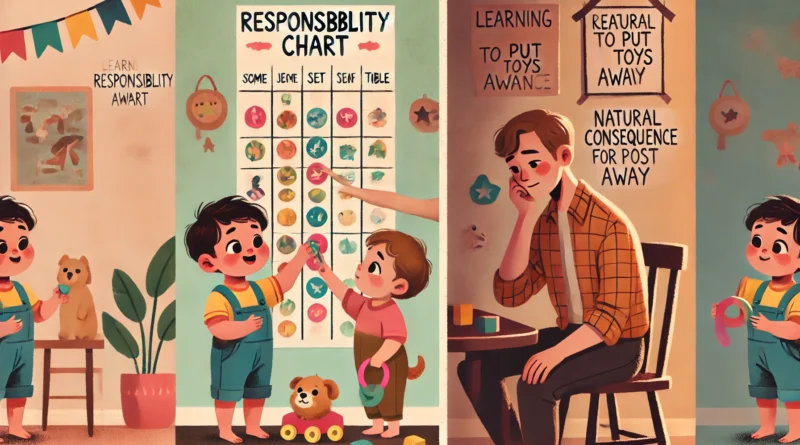How to Teach Young Children About Responsibility
Responsibility is more than just chores—it’s about learning to follow through, take care of things, and understand the impact of one’s actions. When young children develop a sense of responsibility, they gain confidence, independence, and pride in their role at home and in the world. With age-appropriate tasks and plenty of encouragement, kids can begin building this life skill early on.
Why Teaching Responsibility Matters
- Builds independence and accountability
- Fosters confidence and self-worth
- Encourages teamwork and cooperation
- Promotes time management and follow-through
- Lays the foundation for lifelong success
Option 1: Give Simple Daily Responsibilities
Activity Idea:
Assign small, consistent tasks like:
- Feeding a pet
- Putting dirty clothes in the basket
- Helping set the table
Create a colorful “Responsibility Chart” with stickers or checkmarks to track completed tasks.
What Kids Learn:
- Daily structure and expectations
- How to contribute to their environment
- Pride in completing their jobs
Tool Suggestion:
Use magnets or reusable cards so your child can see and move their tasks throughout the week.
Option 2: Teach Natural Consequences and Follow-Through
Activity Idea:
Instead of rushing to fix forgotten tasks, let natural consequences teach:
- “If we don’t put our toy away, we might not find it later.”
- “If clothes don’t go in the basket, they won’t get washed.”
Discuss what happened gently and use it as a teaching moment.
What Kids Learn:
- Accountability for their actions
- Logical thinking and awareness
- That responsibility leads to better outcomes
Book Suggestion:
What If Everybody Did That? by Ellen Javernick — shows how individual actions affect the world around us.
More Tips to Reinforce Responsibility
- Let kids take the lead: Give them chances to choose how or when to complete tasks.
- Celebrate their efforts: Use praise like, “You remembered to water the plant all by yourself—amazing!”
- Model responsibility: Show them your own habits and routines, like making the bed or planning your day.
- Reflect together: Ask, “How did it feel to be in charge of that today?”
Final Thoughts
Teaching young children about responsibility empowers them to be capable, thoughtful contributors at home and in the community. Through small, consistent tasks and natural opportunities to practice, you give them the tools to manage themselves and their world with confidence. And with every responsibility they handle, they grow a little stronger—and a lot prouder.
